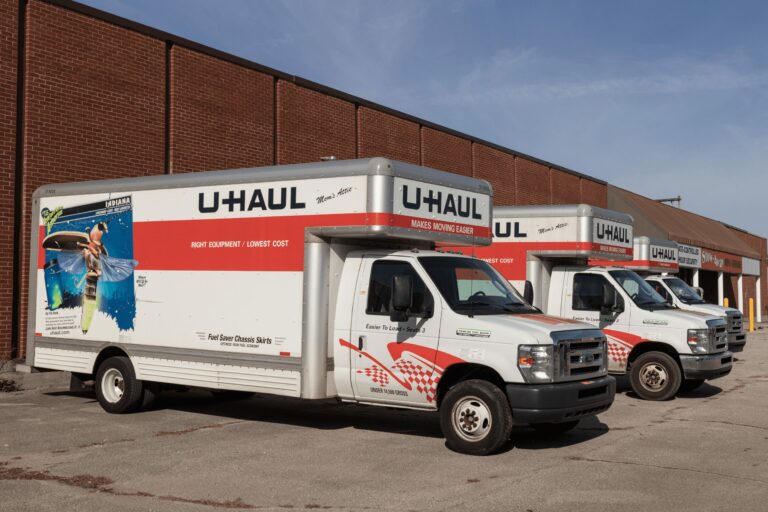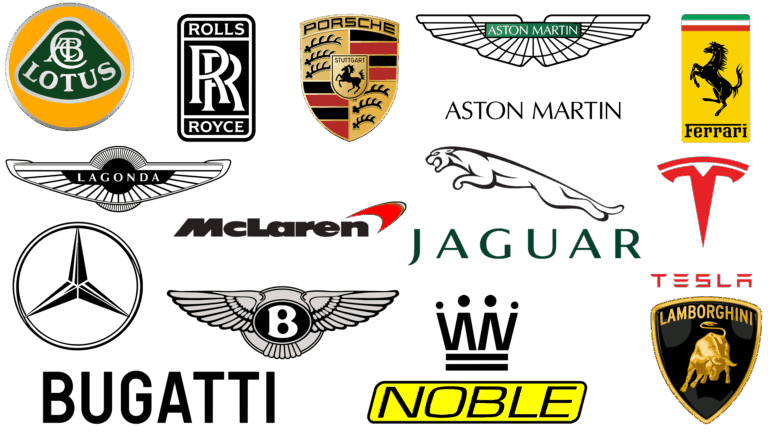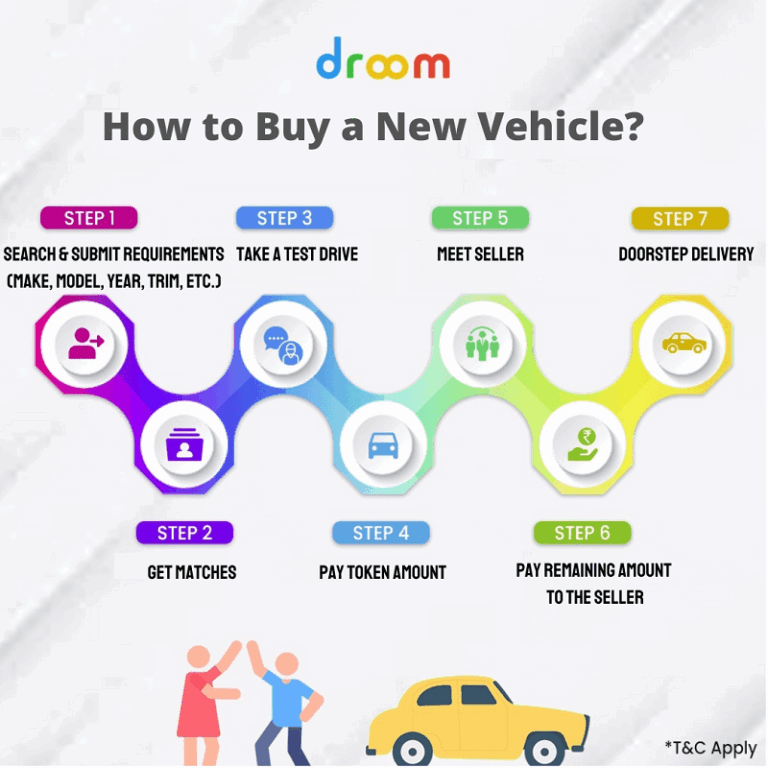Tracks For Pickups Cost: Unlocking All-Terrain Capability and Understanding the Investment
Tracks For Pickups Cost: Unlocking All-Terrain Capability and Understanding the Investment cars.truckstrend.com
The image of a robust pickup truck, usually equipped with formidable tires, transforms dramatically when those wheels are replaced by continuous tracks, akin to those found on tanks or snowmobiles. These specialized track systems turn an already capable vehicle into an unstoppable, all-terrain beast, capable of traversing deep snow, thick mud, loose sand, and challenging off-road conditions that would leave conventional tires spinning. This radical transformation, however, comes with a significant financial commitment. Understanding the "Tracks For Pickups Cost" is crucial for anyone considering this ultimate upgrade, encompassing not just the purchase price but also installation, maintenance, and the long-term implications.
This comprehensive guide will delve into the various aspects of investing in track systems for pickup trucks, exploring the factors that drive their cost, the different types available, the hidden expenses, and ultimately, whether this substantial investment aligns with your needs and adventurous spirit.
Tracks For Pickups Cost: Unlocking All-Terrain Capability and Understanding the Investment
What Are Pickup Truck Track Systems?
Pickup truck track systems are sophisticated, modular attachments designed to replace the vehicle’s conventional wheels and tires. Each system typically consists of four independent units, one for each wheel hub, featuring a series of bogie wheels, an idler wheel, a drive sprocket, and a continuous rubber or composite track that encircles them.
The fundamental principle behind tracks is simple yet highly effective: they drastically increase the vehicle’s contact patch with the ground, distributing its weight over a much larger area. This significantly reduces ground pressure, preventing the truck from sinking into soft terrain, while simultaneously providing unparalleled traction. Whether you’re navigating pristine backcountry snow, slogging through mucky construction sites, or exploring remote wilderness trails, tracks offer a level of mobility that tires simply cannot match. They are indispensable for winter sports enthusiasts, search and rescue operations, utility companies accessing remote infrastructure, and extreme off-road adventurers.
Factors Influencing Tracks For Pickups Cost
The price tag for a set of pickup truck tracks can vary wildly, ranging from the low five figures to well into six figures. Several key factors contribute to this broad spectrum:
- Brand and Manufacturer: Reputable manufacturers like Mattracks, Camso (now Michelin Tracks), and American Track Truck dominate the market. These brands have invested heavily in research, development, and rigorous testing, leading to superior engineering, durability, and performance. Naturally, their premium products command higher prices than lesser-known or generic alternatives.
- Track Material and Construction: The quality and type of materials used significantly impact cost. Tracks made from heavy-duty, reinforced rubber compounds, often with internal steel or composite reinforcement, are designed for extreme durability and longevity, reflecting in their price. Lighter-duty materials might be cheaper but compromise on wear resistance and load-bearing capacity.
- Size and Vehicle Compatibility: Track systems are designed for specific vehicle weight classes and wheel bolt patterns. Tracks for a light-duty half-ton pickup will be less expensive than those engineered for a heavy-duty three-quarter or one-ton truck, which require more robust components to handle greater loads and torque. Custom-fit systems also tend to be pricier.
- Application and Design: Tracks designed for general recreational use (e.g., snowmobiling support) might be less complex and therefore less expensive than those built for heavy commercial applications (e.g., logging, utility work) which demand superior strength, flotation, and continuous heavy use capabilities.
- Included Features and Technology: Some advanced track systems incorporate features like anti-vibration technology, specialized gearing for optimal power transfer, self-tensioning mechanisms, or unique tread patterns for specific conditions. These innovations add to the manufacturing cost and, consequently, the retail price.
- New vs. Used Market: As with any specialized equipment, purchasing used tracks can offer substantial savings, often 30-60% off the new price. However, this comes with inherent risks regarding wear, undisclosed damage, and the remaining lifespan of components.

Types of Track Systems and Their Price Ranges
Track systems can generally be categorized by their intended use and the size of the vehicle they are designed for, which directly correlates with their cost:
- Light-Duty/Recreational Tracks: These are typically designed for smaller pickups or even larger SUVs, often used for accessing cabins, hunting grounds, or recreational snow sports. They prioritize ease of installation and relatively lighter weight.
- Estimated New Price Range: $10,000 – $20,000

- Medium-Duty/All-Purpose Tracks: This is the most common category for full-size half-ton and three-quarter-ton pickups. They offer a good balance of flotation, traction, and durability for diverse off-road, snow, and mud conditions, suitable for both serious recreational users and some commercial applications.
- Estimated New Price Range: $20,000 – $40,000
- Heavy-Duty/Commercial Tracks: Built for extreme conditions, continuous heavy use, and heavier-duty trucks (e.g., one-ton duallys), these systems are engineered for maximum strength, load capacity, and longevity. They are often found in industrial, logging, utility, or search and rescue operations.
- Estimated New Price Range: $40,000 – $60,000+
- Specialized/Amphibious Tracks: While less common for consumer pickups, some highly specialized systems exist for unique applications, often pushing the upper limits of the price range due to custom engineering and materials.
Beyond the Purchase Price: Hidden Costs and Long-Term Considerations
The sticker price of the track system is merely the initial hurdle. Several other costs contribute to the true "Tracks For Pickups Cost" over their lifespan:
- Installation Costs: While technically possible for a DIY enthusiast with the right tools and expertise, professional installation is highly recommended. Tracks are heavy, require precise alignment, and proper torque settings for safety and optimal performance. Professional installation can range from $500 to $2,000+, depending on the shop’s labor rates and the complexity of the system.
- Maintenance and Parts: Like any heavy-duty equipment, tracks require regular maintenance. This includes inspecting bogie wheels, bearings, idlers, drive sprockets, and the tracks themselves for wear and tear. Replacement parts, especially the tracks, can be expensive. Annual maintenance costs can range from a few hundred dollars for light use to over a thousand for heavy commercial use.
- Fuel Economy Impact: Tracks significantly increase rolling resistance and overall vehicle weight. This translates directly to a noticeable decrease in fuel efficiency, potentially by 20-50% or more depending on terrain and driving style. This ongoing operational cost should not be overlooked.
- Vehicle Modifications: While many systems are designed for direct bolt-on application, some heavy-duty usage scenarios might necessitate further vehicle modifications. This could include suspension upgrades (heavier springs, shocks), gear ratio changes for optimal power delivery, or even drivetrain reinforcement to handle the increased strain. These modifications add to the overall investment.
- Storage: Track systems are bulky and heavy. When not in use, they require significant storage space. Factor in the cost or inconvenience of storing them securely and appropriately to prevent damage.
- Insurance: It’s wise to inform your insurance provider about the tracks. While some policies might cover them as aftermarket accessories, others might require a separate rider, potentially increasing your premiums.
- Legal Restrictions: Most track systems are NOT street-legal for highway use. They are designed for off-road environments. Driving on paved roads can damage the tracks, the road, and the vehicle, and may lead to fines or accidents. Transporting them often requires a trailer, adding another layer of cost and logistics.
Is the Investment Worth It? Benefits and ROI
Given the substantial cost, one must critically evaluate whether the investment in truck tracks is truly worth it. The answer largely depends on your specific needs and priorities:
- Unparalleled Traction and Access: For those who absolutely need to access remote, challenging terrain (deep snow, extreme mud, sensitive ecosystems), tracks offer a level of capability that no tire can match. They provide access where others simply cannot go.
- Increased Versatility: Tracks transform your pickup into a highly specialized machine, essentially giving you two vehicles in one – a conventional truck and an all-terrain powerhouse. This versatility can be invaluable for specific seasonal work or recreational pursuits.
- Enhanced Safety: In certain slippery or unstable conditions, the superior flotation and grip of tracks can significantly enhance safety by reducing the risk of getting stuck or losing control.
- Protection of Terrain: Due to their large footprint and low ground pressure, tracks often cause less disturbance to sensitive terrain (e.g., tundra, soft soil) compared to wheeled vehicles that can create deep ruts.
- Professional and Recreational Advantage: For professionals in industries like forestry, utility maintenance, or search and rescue, tracks can be a necessary tool, enabling them to perform jobs impossible otherwise. For extreme adventurers, they unlock new frontiers.
Ultimately, the return on investment isn’t always purely financial. For many, it’s about the capability, the adventure, the peace of mind, or the ability to perform a job effectively that justifies the significant expense.
Tips for Purchasing and Owning Track Systems
If you’ve decided that track systems are for you, here’s some practical advice:
- Define Your Needs: Clearly identify your primary use case. Will you be in deep snow, thick mud, or a mix? How often will you use them? This will guide you toward the appropriate type and durability.
- Research Thoroughly: Investigate different brands, read reviews, and seek out user testimonials. Talk to other track owners.
- Check Compatibility: Ensure the chosen system is fully compatible with your specific truck model, year, and any existing modifications (e.g., lift kits).
- Budget for More Than Just Purchase: Account for installation, potential vehicle modifications, ongoing maintenance, increased fuel costs, and transportation.
- Consider Professional Installation: Unless you have extensive mechanical experience and specialized equipment, professional installation is highly recommended for safety and optimal performance.
- Inspect Used Tracks Meticulously: If buying used, thoroughly inspect every component for wear, cracks, damage, and rust. Ask for maintenance records and inquire about their previous usage.
- Understand Legalities: Be fully aware of local and national regulations regarding track use on public roads.
- Plan for Storage: Determine where you will store the tracks when not in use.
Tracks For Pickups Cost: Price Table Overview
This table provides estimated costs for new track systems and associated expenses. Prices can vary significantly based on brand, features, market conditions, and regional labor rates.
| Category/Item | Estimated New Price Range (USD) | Estimated Used Price Range (USD) | Notes |
|---|---|---|---|
| Light-Duty/Recreational | $10,000 – $20,000 | $4,000 – $10,000 | For smaller pickups (e.g., mid-size) or occasional use; typically simpler construction. |
| Medium-Duty/All-Purpose | $20,000 – $40,000 | $8,000 – $20,000 | Most common for full-size half-ton & 3/4-ton pickups; balanced performance for snow, mud, general off-road. |
| Heavy-Duty/Commercial | $40,000 – $60,000+ | $15,000 – $35,000+ | For heavy-duty 1-ton pickups & extreme conditions; built for maximum durability and load capacity. |
| Professional Installation | $500 – $2,000+ (per set) | N/A | Varies by shop labor rates and complexity; highly recommended. |
| Annual Maintenance | $300 – $1,500+ (per year) | N/A | Depends heavily on usage intensity, terrain, and required part replacements (e.g., bearings, idlers). |
| Vehicle Modifications (Optional) | $1,000 – $5,000+ | N/A | For suspension upgrades, gearing changes, or drivetrain reinforcement if needed for optimal performance/longevity under heavy use. |
| Increased Fuel Consumption | Ongoing (20-50% reduction) | N/A | Significant ongoing operational cost due to increased weight and rolling resistance. |
| Transportation (Trailer) | $1,500 – $5,000+ (if purchased) | N/A | Tracks are not road legal; a trailer is often needed for transport to and from use sites. |
Note: Prices are estimates and subject to change based on market conditions, manufacturer, and specific model features.
Frequently Asked Questions (FAQ) About Tracks For Pickups Cost
Q: Can I drive on public roads with truck tracks installed?
A: Generally, no. Most track systems are not DOT (Department of Transportation) approved for highway use. Driving on paved roads can damage the tracks, the road surface, and the vehicle’s drivetrain. Tracks are designed for off-road, snow, or soft terrain.
Q: How do tracks affect my truck’s performance and fuel economy?
A: Tracks will significantly reduce your truck’s top speed, increase its turning radius, and drastically decrease fuel economy (often by 20-50% or more) due to increased weight and rolling resistance. They also put more strain on the vehicle’s drivetrain components.
Q: Are tracks easy to install myself, or do I need professional help?
A: While some mechanically inclined individuals might attempt it, professional installation is highly recommended. Tracks are heavy, require precise alignment, and proper torque settings for safety and optimal performance. Improper installation can lead to premature wear or damage.
Q: How long do truck tracks typically last?
A: The lifespan of truck tracks varies greatly depending on the brand, construction quality, terrain, usage intensity, and maintenance. With proper care, they can last from a few hundred hours in extreme commercial use to several thousand hours for recreational purposes. Key wear components like bogie wheels and rubber tracks will eventually need replacement.
Q: Do I need special modifications to my truck (e.g., suspension lift) to install tracks?
A: Many track systems are designed to bolt directly onto stock pickups. However, for optimal performance, especially with heavy-duty tracks or in demanding applications, suspension upgrades (heavier springs, shocks) or even gear ratio changes might be recommended to handle the increased weight and strain. Always check the manufacturer’s recommendations.
Q: Is buying used tracks a good way to save money?
A: Yes, buying used tracks can offer significant cost savings. However, it’s crucial to thoroughly inspect them for wear on the rubber tracks, bogie wheels, bearings, and drive sprockets. Hidden damage or extensive wear can quickly negate initial savings with expensive repair costs. Always factor in potential refurbishment costs when considering used options.
Q: What’s the main advantage of tracks over large off-road tires in extreme conditions?
A: Tracks provide vastly superior flotation and traction compared to even the largest off-road tires. They distribute the vehicle’s weight over a much larger contact patch, preventing sinking in deep snow, mud, or sand, and offering continuous grip where tires would simply spin.
Conclusion
Investing in track systems for a pickup truck is a monumental decision, both in terms of capability gained and financial outlay. The "Tracks For Pickups Cost" is not just the initial purchase price, but a multifaceted figure encompassing installation, ongoing maintenance, increased operational expenses, and potential vehicle modifications. These specialized systems represent a significant commitment, typically ranging from $10,000 to well over $60,000 for new units, with additional thousands in associated costs over their lifetime.
However, for those whose work or passion demands unparalleled access to challenging terrain, the ability to transform a conventional pickup into an unstoppable all-terrain vehicle can be an invaluable asset. Understanding every facet of this investment, from the different types and their price points to the hidden costs and maintenance requirements, empowers prospective buyers to make an informed decision. When properly evaluated and chosen to align with specific needs, a track-equipped pickup truck truly becomes a testament to ultimate off-road capability, opening up a world of possibilities that remain inaccessible to conventional vehicles.






